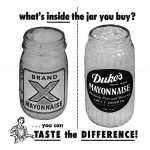Millennial Bashing: The Danger of Seeing Age in the Workplace
— January 22, 2018

StockSnap / Pixabay
I spent the past weekend reading Simon Sinek’s best-selling business book “Leaders East Last,” a page-turner in which Sinek contends that the best organizations are those that build “circles of safety,” characterized by implicit trust and fierce commitment. These organizations have exceptional leaders—the leaders who metaphorically “eat last,” or put the good of their team before their own self interests.
In full disclosure, the fact that I finished a 300-page book over a weekend is a testament to the compelling leadership lessons Sinek infuses throughout. As a huge Sinek fan, it’s not that surprising that I love this book and would highly recommend it.
But I have a gripe with what happens on page 243. As I got to the end, I realized I had picked up the revised version of the book. The 2017 version (amended three years later) now includes a chapter on how to lead Millennials and deal with the challenges this generation brings. Sinek gets pretty specific in offering advice to both those who lead Millennials and Millennials themselves. He offers advice to Millennials like: no phones at the meal table, ask people you respect for honest feedback and if you are unsure of how to tackle a work project, ask for help. He warns those managing Millennials that they should implement bans against using cell phones in conference rooms, teach this younger generation how to give and receive feedback and help them love themselves and build their self-confidence.
I am not saying this advice is bad; I am saying this advice should not be applied at large to an age group but rather to the individuals to whom this advice applies. For every 25-year-old you meet who is attached to his cell phone, you’ll meet a 25-year-old who would never think to bring a cell phone into the conference room. For every 30-year-old who can’t receive constructive feedback graciously, you’ll meet five other 30-year-olds who can. In short, we are each unique creatures with our own beliefs about how to behave both personally and professionally.
What we must remember is that every single time another book, article, speech, workshop and the like is created on how to manage and lead a specific age group, the belief that this age group is such a complicated, unwieldy employee base burgeons. Every word written, creating some sort of universal user’s manual to a generation, exacerbates stereotypes and contributes to a very real age divide in the workplace. Though Sinek handles this chapter with a heightened level of delicacy, the generation generalization is still there. And with Millennials receiving the brunt of this laser focus in so many other publications, I have one plea to you all:
The Millennial Bashing has to stop.
Let’s dive further…
A Confession: I am a Millennial
I was born November 5, 1987 at 3:45 pm. Factually, the day and year I was born mean a few critical things:
- I am a Scorpio—universe, take notice!
- I am the youngest in my family, with my sisters 13 and 10 years older
- Two of the most profound, harrowing experiences of my childhood were September 11 and the economic crash of 2008
- I turned 30 in 2017
- I am a Millennial
Because of the year I was born, analysts and pundits suggest this means I will be:
- Entitled
- Lazy
- Distracted
- Self-centered
- Digitally-addicted
- Flighty
- Impatient
- Conversationally-illiterate
Though some have come forward with positive attributes to describe this age group—purpose-driven, entrepreneurial and passionate—the sweeping generalization is still that my age group poses grave challenge to the workplace of today. A quick Google search reveals endless articles on how to deal with “us.” As such, it may come as no surprise, that being called a Millennial feels analogous to being stamped with a Scarlet Letter. It can even feel derogatory.
To say that all Millennials will likely behave the same way is to say the year someone is born—or the 15-year age range in which they were born—is the biggest factor in one’s disposition. Think of that for a moment… that would mean that a 32-year-old, a Millennial, will likely operate exactly the same way as a 22-year-old, also a Millennial. The 32-year-old was in college when Facebook came out and in high school when the planes crashed into the World Trade Center. The 22-year-old, by comparison, was 8 when Facebook came out and 5 in 2001. Though lumped in the same generation, these age groups have experienced completely different things.
It’s because of examples like this, and a myriad of other reasons, that I don’t believe the year one is born has any major bearing on the person they end up becoming. All Boomers were not driven to the Hippie lifestyle; similarly, not all Gen Xers skateboarded through high school.
Sure, the year in which we were born, the experiences we have as a child, the advancements we see in our lifetime shape our experiences and our belief systems. But from the time we are born, these experiences and beliefs are balanced against bigger determinants—our value system, our moral compass, our personality, our inner fire, our insecurities, our strengths, our disposition. The year I was born does not profoundly define who I am. It may leave an imprint, but my soul is the reason I am who I am.
Despite what the market research will tell you, I don’t need a nap room and a dog-friendly office to make me say “yes” to a job. And though I don’t believe in hierarchy, that’s not because I am entitled; rather, it’s because I believe in a different leadership paradigm. Though you may read that people my age don’t know how to dine without their cell phone present, I will tell you that one of the first determinations as to whether we will be friends is if you are able to unplug when we are together.
I write hand-written thank-you cards—thanks mom!; I still have a landline; I speak in idioms; I go to bed at 9 pm and wake up at 6 am; I work my butt off; and I have great respect for extraordinary professionals. I celebrate my talents and work actively on my blind spots. And I choose my relationships based on the individual, not one’s age. Yes, some of my best friends are in their 50s and 60s, along with those in their 30s.
In short, I am me.
The Dangers of Seeing Age
At age 25, I took on my first leadership role, joining Gen Xers and Baby Boomers at the leadership roundtable. Over the past five years, I have kept that “seat” as I have moved jobs. Just last year I started my own company, the Women in Leadership Nexus, at age 29. I am also the Principal of Marketing for a pretty awesome startup company called Trilix.
But there is one thing that profoundly changed for me at age 25, something for which I will always be eternally grateful. I started working for leaders who did not see age in the workplace. I started working for individuals who were more interested in getting to know me as a professional—not Carrie, the Millennial.
These leaders always treated me with the utmost respect. Though they may have been 20-30 years my senior, that age gap was never felt. We came together as professionals committed to moving the company forward. We recognized the incredible value in differing perspectives and spirited dialogue. And through working for these leaders I never once felt stigmatized or treated differently because I was a Millennial. They were not reading the manual in terms of how to manage me.
Unfortunately, these types of leaders can be few and far between. Perhaps more common is to find individuals who actively try to see difference in the workplace—age, gender, race, religion. There is much that can be written on this topic, but to stay with age for a moment, to see age—specifically generations in the workplace—is to hold your company, department and team back from greatness.
When we see age in the workplace we:
- Pass over the right candidates, making snap judgements in any direction about how Millennials, Gen X and Baby Boomers will perform
- Make statements and assumptions that can hurt our team members and make them feel judged
- Keep our workplaces from becoming age-diverse across the corporate ladder
- Fail to realize how differing viewpoints and experiences strengthen our organization
- Prevent generations from coming together and celebrating commonalities instead of focusing on differences
At the end of the day, when we assume something about an individual because of the generation in which they are in, we take two steps back in our own leadership journey.
A Stronger Workplace
The workplace of tomorrow has to look exceedingly different for companies to remain competitive in a highly saturated market. It’s why Sinek’s book is so compelling. He is spot on about the call for a new type of leadership paradigm, one that promotes the softer components of leadership like empowerment, collaboration, co-creation and vulnerability.
But to get there, we also have to stop typecasting. We have to stop making sweeping generalizations about age groups—in both directions—and commit to knowing our team members at the individual level. No two 25-year-olds need the same thing professionally, nor do two 45-year-olds. We should stop writing articles about “How to Manage Millennials” and start writing articles about “How to Support Our Employees at the Individual-Level.” We need to have more inclusive workplaces that don’t place our employees on the defense, trying desperately to prove they are more than the stigma attached to their age group. We have to get to know the individual.
When you meet leaders like this, those who do not see age, it is evident. They lead differently. They spend the time getting to know their team members. They don’t use phrases like “Millennial” in the workplace. They form meaningful relationships with their colleagues because they are more focused on similarities than differences. These are the leaders who help us get to a better tomorrow. Let’s learn from them.
I know this blog won’t put an end to Millennial bashing but my hope is you may be inspired to do a few things:
- Start building relationships with people of all ages. Some you won’t connect with; the age gap and differing viewpoints will feel too great to overcome. But some of the relationships you build will surprise you, and delight you. You’ll perhaps find greater depth in these relationships than with folks your own age.
- Challenge yourself to stop seeing age in the workplace. Don’t make assumptions about how a colleague will behave. Don’t even guess their age. Focus instead on getting to know them, their wonderful gifts and their areas for growth. You’ll evolve your own leadership style in so doing.
And, if nothing more, please, please… let’s stop using the term “Millennial.”
Business & Finance Articles on Business 2 Community
(50)













